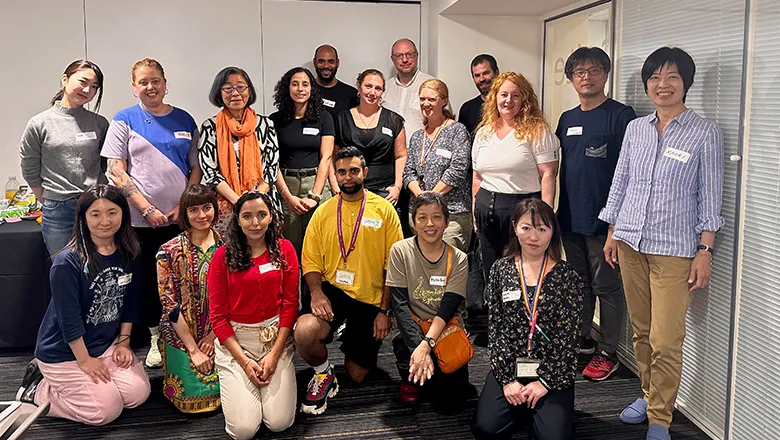Comparing their local and national situations, the participants discussed the differences in policy and social contexts and the historical background of youth work in the UK and Japan. Yet they also identified common challenges, including a lack of understanding of the value of youth work in young people’s lives, and a lack of time and space for critical reflection on practice.
They reflected on the benefits of a culture of sharing stories of practice among youth workers, and what the barriers might be. They explored the potential for learning and practice development between different international contexts.
These conversations were the potential beginning of a new collaborative partnership, building on previous relationships between a practice-research collaboration in Japan (led by Professor Maki Hiratsuka, Hosei University) and In Defence of Youth Work, a network of critical youth workers in the UK. This led to Professor Hiratsuka inviting In Defence of Youth Work members Dr Tania de St Croix, Senior Lecturer in the School of Education, Communication & Society at King’s College London, and Colin Brent, from Ealing Youth Service, to Japan in 2019 to share their experiences of youth work through the medium of stories.
The workshop hosted by Dr de St Croix at King’s developed this work further, by focusing on the future potential for a culture of storytelling practices amongst youth workers. It also enabled participation from a wider group of youth workers and researchers from across the UK (including Dundee, Birmingham and London), learning from the research-practice collaboration in Japan. The workshop included discussion of issues of power, ethics, equality and inclusion in the context of youth work, and plans to take the collaboration forward in future.
Prof. Maki Hiratsuka, from the Faculty of Social Sciences, Hosei University in Japan, said: “We Japanese youth workers and researchers realised we needed a way to find and share the common values of youth work. Initially, we learnt from the Storytelling Workshops of In Defence of Youth Work. Then, as we have recently published 10 of the stories that emerged from the workshop in Japan, we proposed to work together to develop practices and cultures of storytelling, and share our practices collaboratively to challenge our issues in each country. I am grateful we have taken the first step.”
The group is hoping to develop new ways of telling and sharing youth workers’ stories of practice, both in writing and through other creative methods, to best support the collective voices of youth workers, support practice, and communicate the value of grassroots youth work to society.




